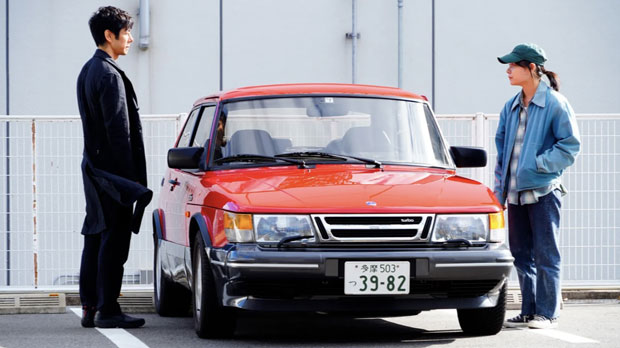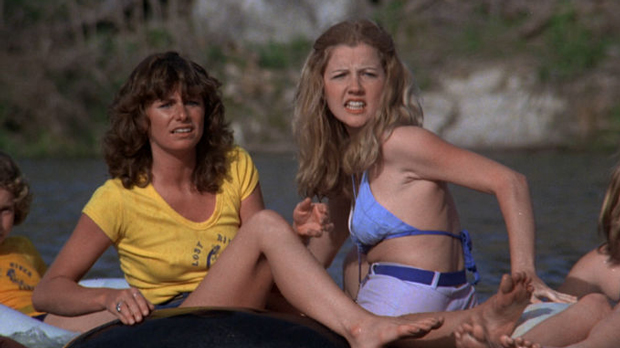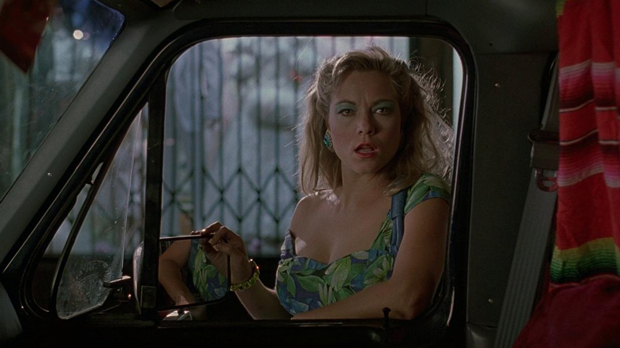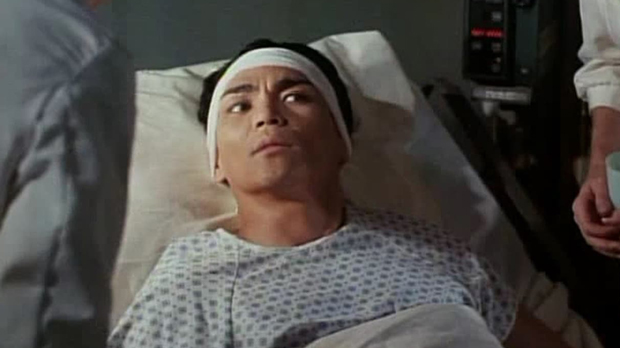 Drive My Car (2021) Janus Films/Drama RT: 179 minutes No MPAA rating (sexual content/references) Director: Ryusuke Hamaguchi Screenplay: Ryusuke Hamaguchi and Takamasa Oe Music: Eiko Ishibashi Cinematography: Hidetoshi Shinomiya Release date: November 24, 2021 (US) Cast: Hidetoshi Nishijima, Toko Miura, Masaki Okada, Reika Kirishima, Park Yu-Rim, Jin Dae-Yeon, Sonia Yuan, Ahn Hwitae, Perry Dizon, Satoko Abe. Spoken in Japanese w/English subtitles
Drive My Car (2021) Janus Films/Drama RT: 179 minutes No MPAA rating (sexual content/references) Director: Ryusuke Hamaguchi Screenplay: Ryusuke Hamaguchi and Takamasa Oe Music: Eiko Ishibashi Cinematography: Hidetoshi Shinomiya Release date: November 24, 2021 (US) Cast: Hidetoshi Nishijima, Toko Miura, Masaki Okada, Reika Kirishima, Park Yu-Rim, Jin Dae-Yeon, Sonia Yuan, Ahn Hwitae, Perry Dizon, Satoko Abe. Spoken in Japanese w/English subtitles
Rating: ****
The Japanese drama Drive My Car runs just one minute shy of three hours, yet it doesn’t feel that long. I’m aware of how trite this sounds, but it’s the God’s honest truth. It’s easier to sit through than several recent films of near-equal length or shorter. Eternals (156 minutes) felt like an eternity. The Matrix Resurrections (148 minutes) never comes to life. I could name others, but you get the idea. What’s most interesting is that Drive My Car is not a movie of action. No car chases, no gun fights, no explosions, NOTHING. Things do happen, but it’s really more about the characters and how they react (or don’t react).
Directed by Ryusuke Hamaguchi (Wheel of Fortune and Fantasy), Drive My Car is something of a breakthrough for the Japanese filmmaker who stands a good chance of pulling a Bong Joon Ho (as in the director of 2019’s Parasite) at this year’s Oscar ceremony. It’s up for four Academy Awards including Best Picture and Best International Feature. It definitely deserves to be listed among the elite. It’s an extraordinary film. It’s a sad, beautiful and poignant drama about loss, regret, guilt, acceptance and self-discovery. It’ll take some patience on the viewer’s part, but it’s richly rewarding in the end. Contemplative and introspective, it’s a road trip of the emotions.
The protagonist is one Yusuke Kafuku (Nishijima), a stage actor and director living the best life he can. He’s married to Oto (Kirishima), a screenwriter with a unique method of conceiving stories. They come to her while she has sex with her husband. Unable to remember them afterwards, Oto narrates them to Yusuke who fills her in the next morning. They share a comfortable marriage. They love each other, but they’ve grown emotionally distant since the death of their young child years earlier. Yusuke is a stoic, reticent sort who keeps his feelings bottled up. He doesn’t even react when he catches his wife in bed with another man.
Oto’s latest story is about a teenage girl who regularly sneaks into the home of a classmate she’s infatuated with. She narrates the tale to her husband who listens intently. Unfortunately, tragedy strikes before she can tell him how it turns out. Even worse, it strikes before the couple can resolve a certain matter of importance. Yusuke carries the burden of guilt for this, blaming himself for avoiding the conversation by driving around until very late. He finds Oto dead on the floor (brain hemorrhage) when he finally gets home.
Perhaps I ought to briefly talk about Yusuke’s car, an old red Saab 900. It’s his most prized possession. He can use it as a means of escape or return depending on the situation. It’s also a place where he can be alone with his thoughts. Mostly, it’s a place for him to listen to a cassette tape of his wife reading the Chekov play Uncle Vanya. He uses it to rehearse the lines of the title character, the last role he played before an on-stage breakdown during a show caused him to limit his involvement with theater to directing. In short, it’s a safe place for the tortured artist.
Two years after his wife’s death, Yusuke drives to Hiroshima where he’s to direct an experimental production of Uncle Vanya. It will be performed in multiple languages- Japanese, Mandarin, Korean and Korean sign language (one of the actresses is a mute). He’s to oversee six weeks of rehearsal followed by two weeks of performances. One of his actors, Koji (Takatsuki), was “acquainted” with Oto. Yusuke knows it, but avoids talking about it with the young actor who’s dealing with a recent career setback. Instead, he casts him in the age-inappropriate role of the title character.
For insurance reasons, Yusuke is assigned a driver even though he doesn’t want one. She’s Misaki (Miura), a reserved young woman with a tragic backstory of her own. Like her passenger, she’s disinclined to talk. At first, their interactions are limited to brief professional exchanges. As the weeks go by, they begin to open up to each other, sharing their pain and beginning the process of healing.
Based on the short story by Haruki Murakami (from his 2014 collection Men Without Women), there is a lot going on in Drive My Car. There’s some drama about the mute actress (Yu-Rim), a former dancer with a secret. There are endless scenes of table read-throughs where Yusuke meticulously goes over every line of dialogue with the cast; he expects nothing less than perfection. There’s plenty more, but I’ll leave that for you to discover.
What else can I say about Drive My Car other than it’s brilliant. There’s not a single wrong note, misstep or flaw in the entire film. It’s wonderfully acted by all, especially the two leads. They share something that goes beyond chemistry. It makes it easy to believe the spiritual connection between their characters. Their unspoken pain is absolutely palpable. Nishijima’s portrayal of a grief-stricken individual who hides his pain with professionalism is pitch perfect. He’s subdued rather than showy. That’s exactly what’s called for here. Miura turns in a sublime performance as a young woman running away from something that she can’t get away from. It’s always with her. It’s only fitting that their story unfolds in Hiroshima, a city with a deep connection to trauma.
The cinematography by Hidetoshi Shinomiya is stunning. The long, repetitive shots of Yusuke’s red car against the empty, endless roads indicate the spiritual journey he’s on. The score by Eiko Ishibashi is in perfect synch with the dreamy tone of the film. That’s actually the best way to describe Drive My Car; it’s like a long dream that haunts as it mesmerizes. You’ll be sorry when it’s over, but it ends just where it should. It’s one of the year’s best films.




